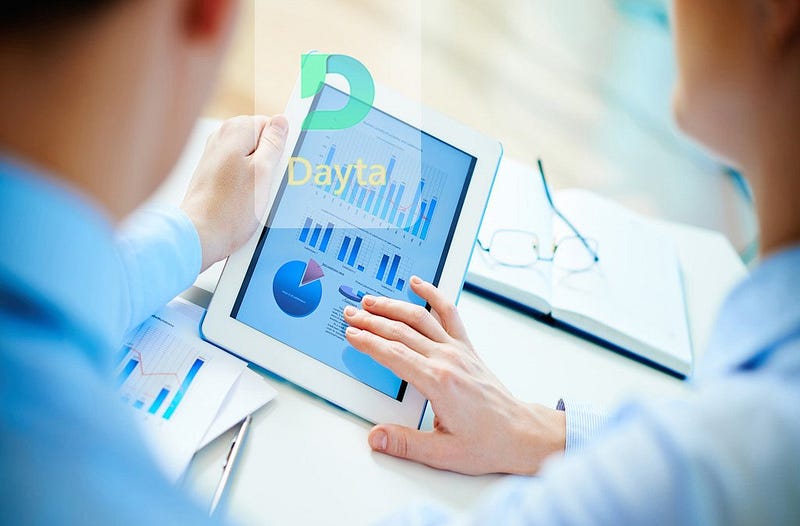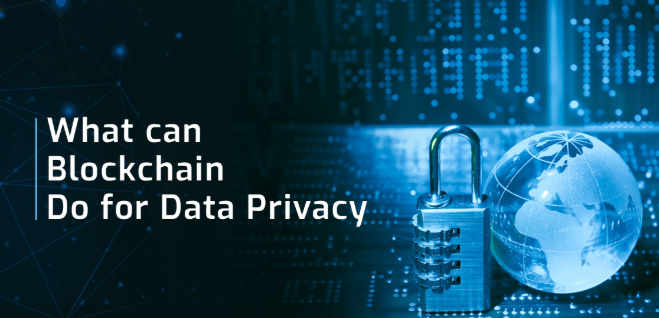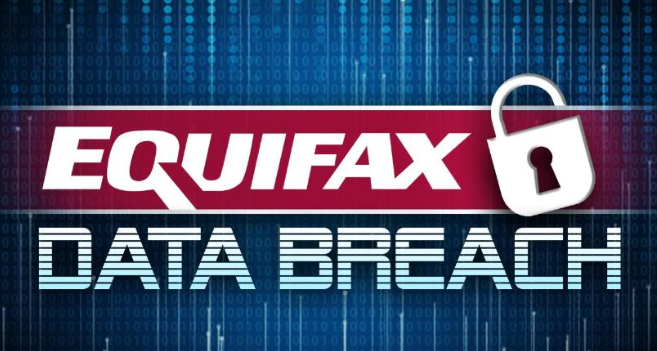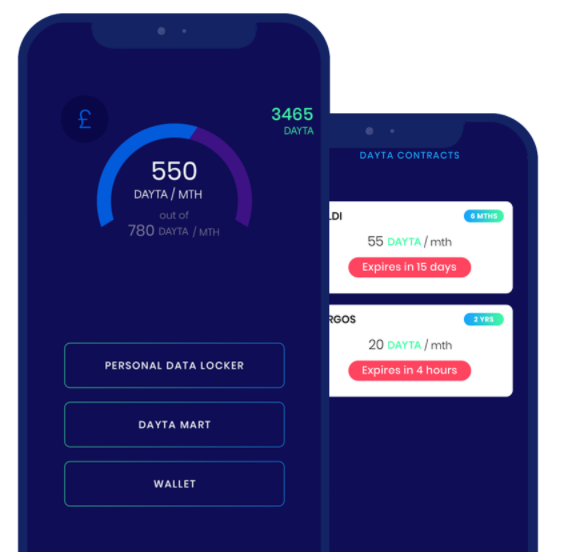We will provide Article to present the “ DAYTA” project to potential platform participants and those who are interested in contributing to its development. The information listed below may not be complete and does not imply any contractual relationship. The main purpose is to provide information to everyone, so that they can determine whether they are willing to analyze the company with the intention of obtaining token or invest.
The hope of joining the This project is very big for us, before you join it will be better if you understand the project besides it will add to your insight and improve information for you especially understanding the project’s vision and mission so that it adds to your trust in.

DAYTA Is a blockchain based platform that will help users to manage, store and likewise share access to user’s personal data and information in order for the users to get more profits. It is observed most data company always share user’s data and earn money from it even without the consent of the real owner of the data. The most painful part is that after the company have sold their users data to some other companies, they failed to pay the true owner of the data for in which users and customers often time get angry with this. If users and customers have gotten control over their data it would be so easy for them to trace their account details and know whenever their data is been accessed and sold in the centralized platform. This is the reason why the centralized platforms are struggling with the issue of trust and transparency. They knew that the moment they gave full access to the customers and owners of the data in their centralized platform that’s the end of their games and that’s why they revoked access to user’s data. All these difficulties experienced by users have been identified by DAYTA platform and that’s why they have launched a decentralized blockchain based platform which gives users full access and control over their data, The advantages of DAYTA platform is that users can decide anytime they want whether to sell their data or not. User’s data is one of the great treasures of human life and customers wouldn’t take it easy with whichever companies that sold their data without their consent. Today all the worries of the users and customers can lay to rest simply because there is new blockchain based project called DAYTA which will help with the security of user’s data.
Why Dayta?
Profit from your Personal Data
Dayta enables Users to finally partake in the profits companies produce by using our data for marketing purposes, behaviour analysis and customer insight.
Blockchain Infrastructure
Users, Businesses and Miners hold independent but interrelated roles, Underpinned by the Dayta blockchain and managed through the DAYTA token.
GDPR & Data Protection
Dayta has a GDPR-ready design to ensure users can easily manage and profit from their data worldwide.
Blockchain, Data Protection & Personal Data

With the advent of distributed ledger technology as a means to either solve existing problems or disrupt existing industries, the question of data integrity in relation to personal data is a concern for data protection experts and innovators alike. While Bitcoin and other cryptocurrencies use blockchain to store records of token exchange, the desire to add to a public blockchain data that relates to and makes use of personal data raises questions on data protection and regulatory compliance.
Blockchain as a method of Authentication
With Equifax and similar household names experiencing data breaches of several hundred million customers affected, blockchain start-ups are looking to pioneer more secure methods of authentication. While companies such as Equifax store and manage customer personal data in servers they control, many projects look to enshrine self-sovereign principles into their blockchain design where individuals have access to and control their identification data, used then by companies as a means of authentication without storing it themselves. Where each user is the only user in a blockchain that can access their data, the single-point-of-failure found with centralised systems goes away, along with the risk of major personal data breaches.

Various companies and start-ups are present in this space, from house-hold names such as Microsoft and IBM, collaborative efforts from projects such as Hyperledger and others such as Civic, TrustedKey, Uport and SelfKey.
Blockchain as a method of Data Storage
Blockchain data storage is another user case of personal data wherein a user’s data is stored on the blockchain. This data, used for simple storage or as a means to service a customer’s needs through additional services, is secured in much the same way as data for identification purposes. However, the extent of data specified can include anything that relates to the person, and is therefore subject to the full spectrum of data protection regulation surrounding personal data acquisition, storage and management. Projects such as Storj, File Coin and Sia all look to store user’s personal data across a distributed ledger that includes existing data centres with available space and even people’s personal hard drive space. While security is paramount, the problem of using blockchain technology to store personal data is manifold, including but not limited to the following:
– Blockchain technology is noted for its immutability (i.e. cannot be changed). This causes problems with conforming to KYC (Know Your Customer) and GDPR’s (General Data Protection Regulation) requirements to allow customers to manage their personal data and any changes to it.
– The distributed nature of blockchain means that personal data is located as a copy in a multitude of nodes across a wide network, increasing the possibility of breach, though reduced in probability due to encryption.
– Blockchain nodes can exist the world over, causing regulatory concerns around the data protection of citizens subject to and protected by laws on data protection. A good example is GDPR, where any data relating to a subject identified as relating to an EU country (not just a citizen) is subject to its protection, wherever in the world that data is processed.
Responsibility to maintain personal data protection can be for the individual, resulting in a burden for users that could result in lost access to personal data with the loss of corresponding private keys.

Blockchain as a method of Data Reference
The safest way to store personal data in a bid to mitigate the risk of online attacks is to remove the risk entirely, and store such data off-chain and away from the Internet. While this may seem impossible to do, reference data may be stored on a blockchain that directly corresponds to personal data. For example, a retailer wishing to expand their marketing campaign could be satisfied in knowing that real users exist in a service that ensures such qualification, shares demographic data relating to the individual on-chain but ensure personal data is kept off-chain.
Dayta looks to enable users to share their personal data direct with companies, whether partially or fully. A user enters into profitable agreements that are stored on the Dayta blockchain, with any personal data either shared directly or reference data used. The company in question will know all users are verified as distinct and marketable. Any personal data that is shared direct to the engaged company will be deleted immediately once the agreement is over, or whenever the user wishes.
While fighting data hacks and breaches is always going to be an ongoing struggle, new approaches to data usage, data storage and data protection will be needed to ensure we go beyond the simple centralised vs decentralised debate to one that looks to mitigate partially or remove the risks where possible.
Dayta Mobile App
From personal data baseline integration to Dayta marketplace exchange interaction, the Dayta mobile aao will be a user’s one-stop shop for maintaining control over and managing their personally identifiable information.
Personal data baseline & authentication
Personal data baseline & authentication
- Consent traded data access agreements
- EXP Summary & forecasts
- DAYTA wallet integration (deposit / withdrawals)
- Dayta Marketplace
- PROTOTYPE

ICO DETAIL
DAYTA tokens will be available prior to the public sale for registered participants. Bonuses will apply for early contributors at varying % dependent on date and amounts. Private investors can negotiate larger bonuses on a case-by-case basis.
Token Name: DAYTA
Token Type: ERC20
Investor Phase: Feb 2019 — Apr 2019
Number of tokens for sale: 1,500,000,000.00 DAYTA
Pre-ICO: May 01, 2019 (12:05 AM)
Tokens exchange rate:
1 ETH = 33750 DAYTA, 1 BTC = 961200 DAYTA
1 LTC = 14823 DAYTA, 1 DASH = 22005 DAYTA
ICO Public sale: May 11, 2019 (12:05 AM)
Acceptable currencies: ETH, BTC, LTC, DASH
Minimal transaction amount: 1 ETH/ 0.1 BTC/ 3 LTC /2 DASH
35% Bonus Pre ICO
18% Bonus ICO Week 1
15% Bonus ICO Week 2
10% Bonus ICO Week 3
5% Bonus ICO Week 4
TOKEN DISTRIBUTION
30% Allocated to Pre-ICO
30% Allocated to ICO
20% Allocated to Core Team and Advisors
10% Allocated to Partnerships
5% Allocated to Bounty
FUND DISTRIBUTION
50% Allocated to Engineering
15% Allocated to Operations
15% Allocated to Marketing
10% Allocated to Business
5% Allocated to Legal
5% Allocated to Security
Project solves the costly and costly problem. The platform is a prime example of the meaningful use of smart contracts and is therefore absolutely groundbreaking for the future. With their experienced team and a very good vision, this is a serious project with great prospects of success.
Roadmap
October 2018
Whitepaper Publication
December 2018
ICO Smart contract Development
January 2019
Private sale start
April 2019
Bounty Programme
May 2019
Pre-ICO Token Sale
June 2019
ICO
July 2019
Token Sale Distribution
Exchange Listing for peer to peer trading
September 2019
Agile engineering and product management start
October 2019
MVP for blockchain- integrated user app release
December 2019
Main network launch / customer and business on-boarding
January 2020
Business development and marketing strategy, business and customer enhancements and value add-services
Team
Zumar Ahmed: CEO & Founder
Laura Feeley: Customer Experience and Marketing Director
Bret Calvey: Senior Software Consultant
Danish Hameed: Blockchain Consultant
Vitally Marinchenko: Smart Contract Developer
Stefan Beyer: Blockchain Architect
Daniel Spyralatos: Community & Marketing Coordinator
Ernest Chuang: Marketing Advisor
Advisors
Kenn Palm: Advisors
Boyan Josic: Advisors
Ruslan Kosarenko: Advisors
Inna Semeniuk: Advisors
Michael Iatsukha: Advisors
For More Information you can visit link below :
Website: https://www.mydayta.io
Telegram: https://t.me/mydayta
Twitter: https://twitter.com/MyDayta
Facebook: https://www.facebook.com/mydayta
Reddit: https://www.reddit.com/r/dayta/
Medium: https://medium.com/@mydayta
Author : Letty sits
Profile Link : https://bitcointalk.org/index.php?action=profile;u=1856247
Profile Link : https://bitcointalk.org/index.php?action=profile;u=1856247
Tidak ada komentar:
Posting Komentar